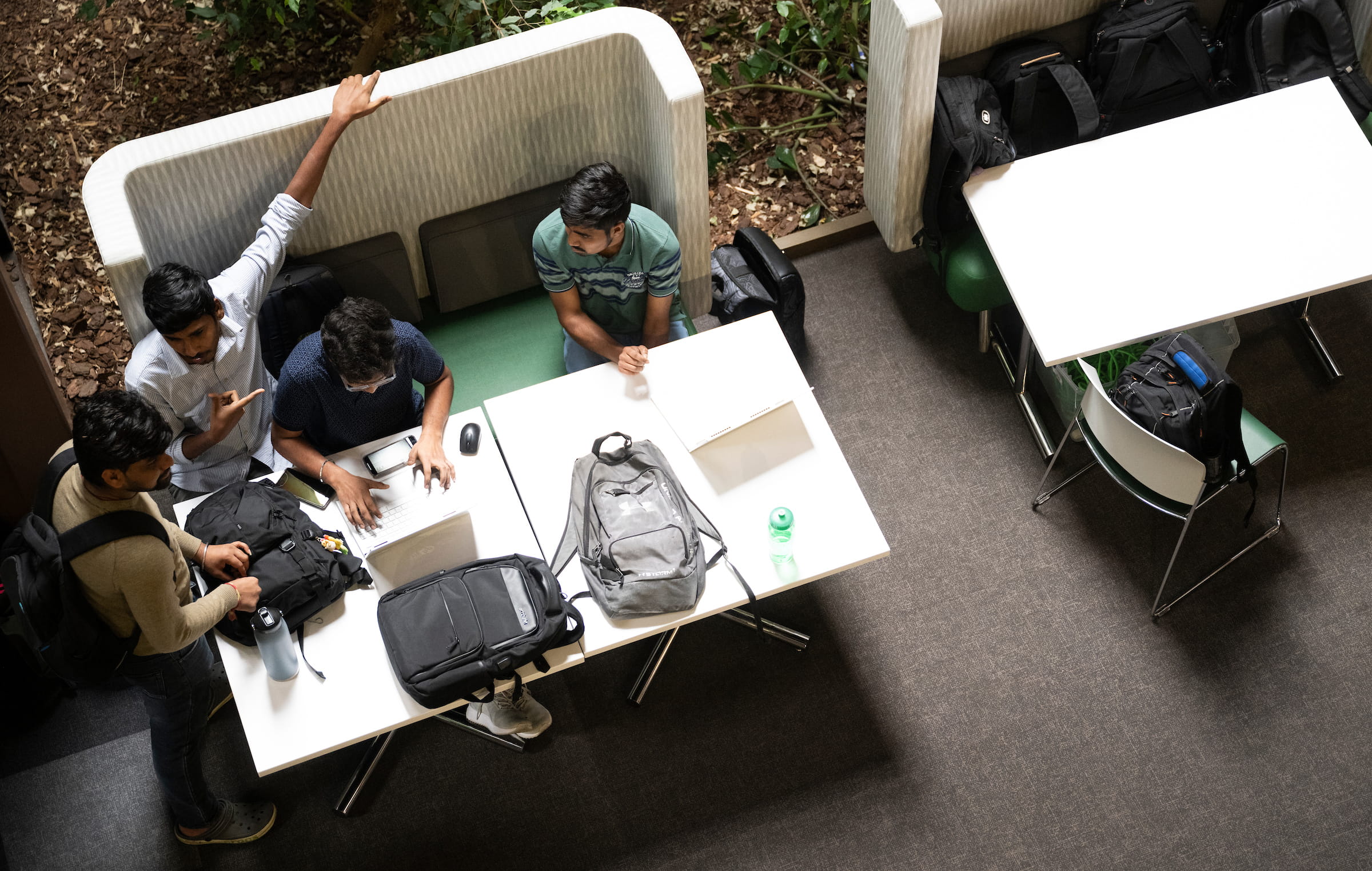
DENTON (UNT), Texas — As National Engineers Week begins, the University of North Texas College of Engineering is celebrating its students and faculty with events and showcasing groundbreaking research.
“The college is a community full of opportunities, and we strive to support our students’ futures,” said College of Engineering Dean Paul Krueger. “We want them to explore options in their major, connect through student organizations or gain research experience.”
Established in 1951 by the National Society of Professional Engineers, National Engineers Week highlights the impact of engineering and encourages K-12 students to explore the field. UNT is marking the occasion with career readiness seminars, competitions and a movie night at Discovery Park, the largest research facility in the North Texas region.
Showcasing innovation
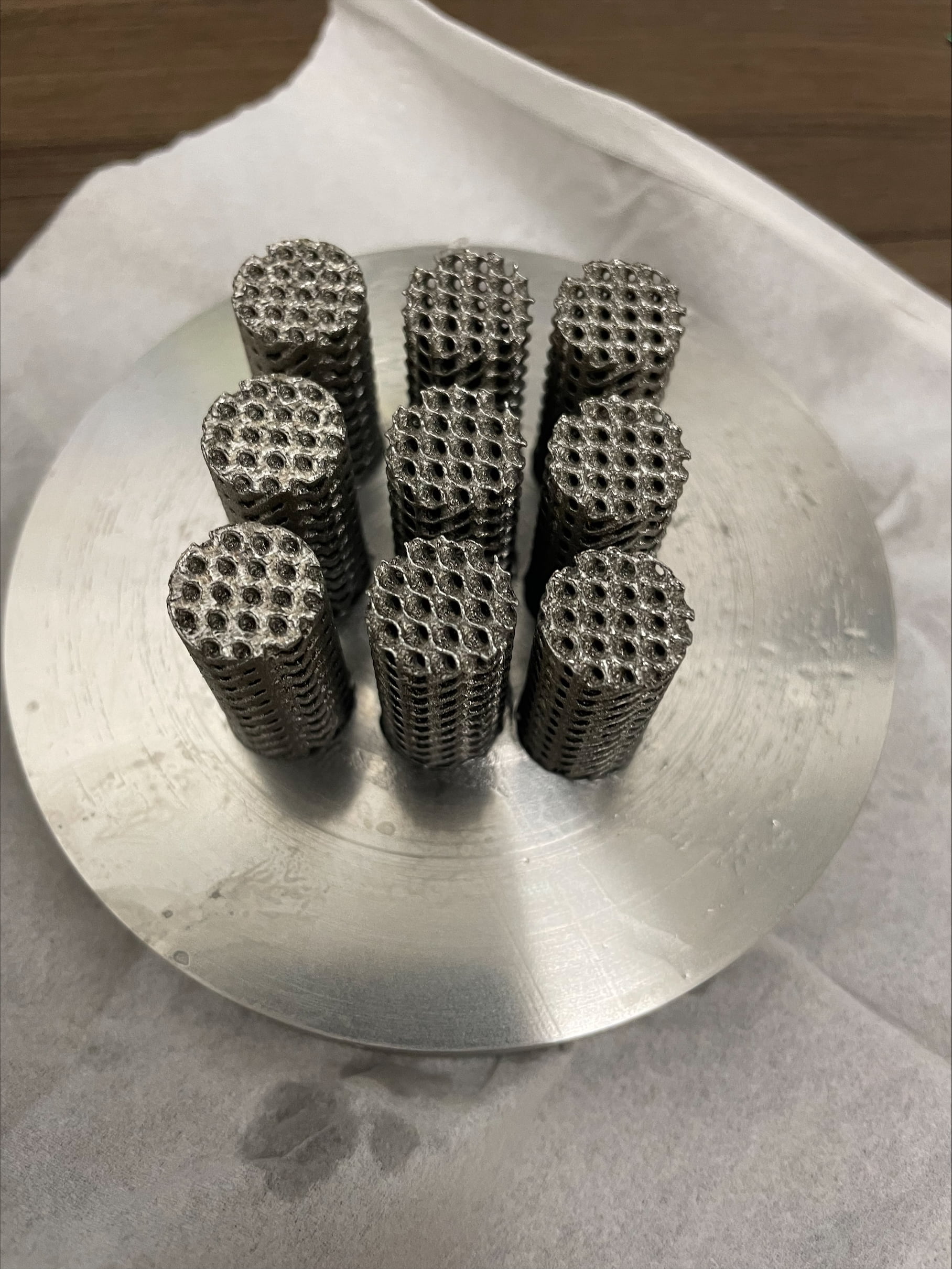
Undergraduate engineering students demonstrate their learning through senior design projects. This year in the Department of Materials Science and Engineering, Magdalena Cruz, Wesley Miller and Jacob Spencer are developing radially grated stainless-steel prosthetics for bone repair.
“We’re designing lattices with the right stiffness that could support bone growth,” Spencer said.
The team is testing different densities to find the best match for bone stiffness at UNT’s Center for Agile and Adaptive Additive Manufacturing (CAAAM), with support from the staff. CAAAM’s advanced additive manufacturing machines use a laser and metal powder bed, similar to 3D printing, to create the components. Their research aims to fill a gap in biomedical engineering.
“We hope our work becomes a foundation for future studies in stainless-steel implants,” Spencer said.
Hands-on learning
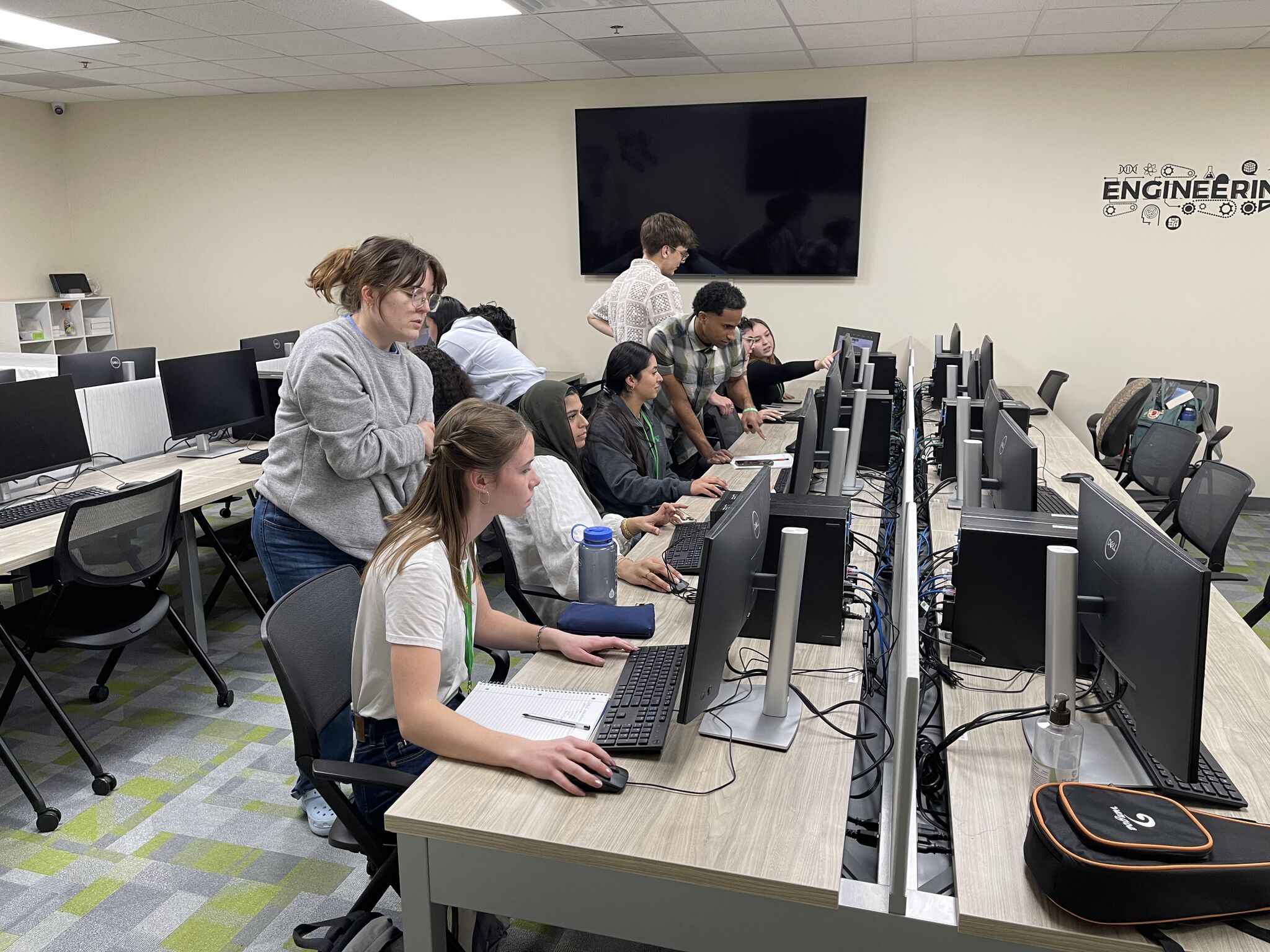
Students extend their learning and research outside of the classroom through organizations like the UNT Biomedical Engineering Society (BMES), which hosted its annual Medical Device Make-A-Thon this month. Competitors had 24 hours to design solutions for better bone fracture treatments.
The first-place team, named Clavi-Fusion, created a hybrid cast and sling for collarbone injuries, offering improved mobility and breathability.
“This competition gives students a chance to showcase their adaptability and innovation,” said BMES president Marc Anthony Torres. “It allows them to market themselves to the judging panel while celebrating the excellence of the Department of Biomedical Engineering and UNT’s College of Engineering.”
Advanced research and education
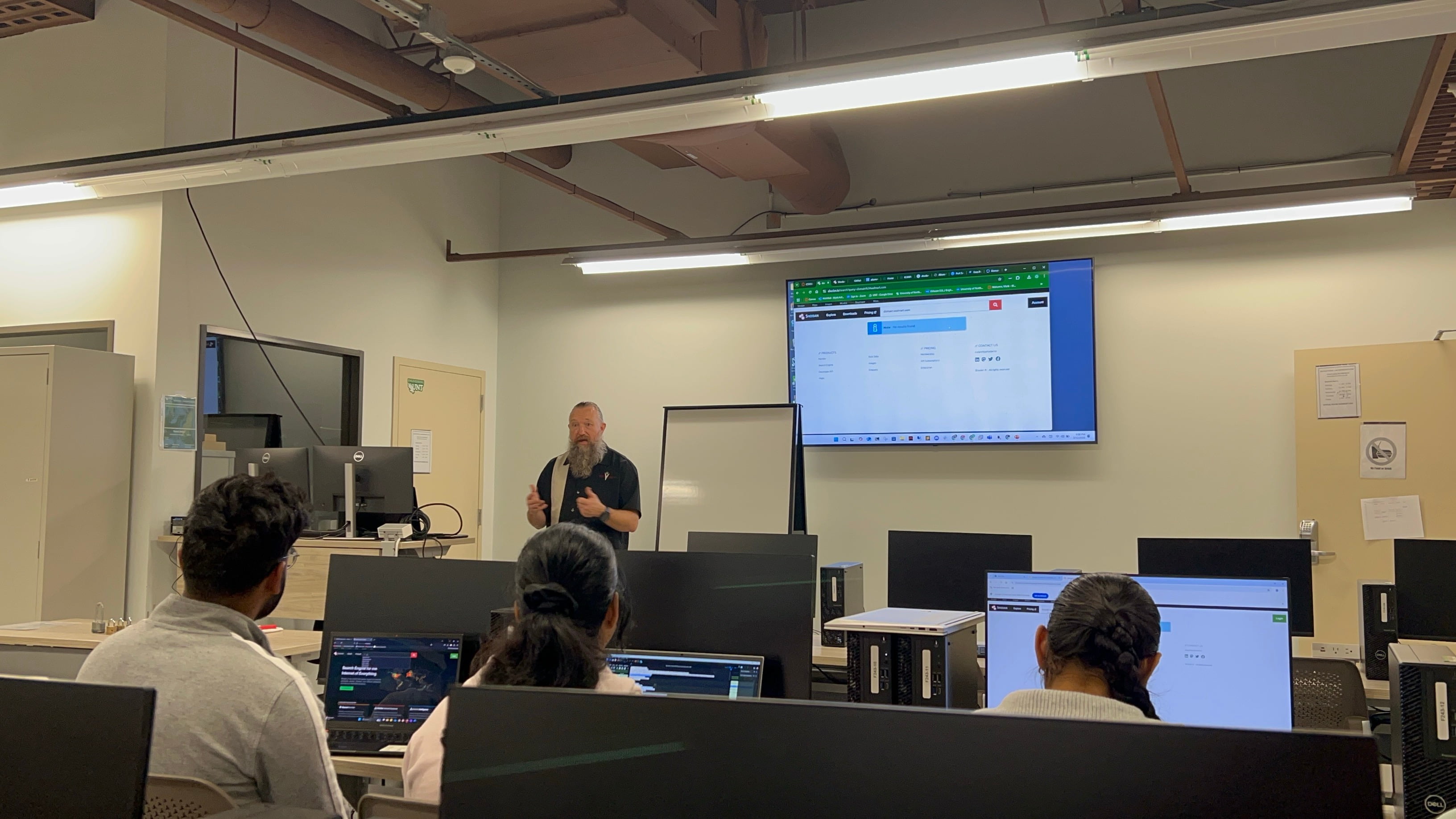
Graduate students in computer science and engineering gain real-world experience in the Cyber Security Penetration Testing course, where they simulate cyberattacks to identify vulnerabilities.
“They use the same tools and techniques as hackers — but on virtual machines — to learn how to help companies strengthen their defenses,” said adjunct faculty member Mark Hoffman.
Xinyi Xiao, an assistant professor in mechanical engineering, researches computational modeling to optimize additive manufacturing.
“The most rewarding aspect of teaching is witnessing the transformation of students as they develop their expertise, problem-solving skills and innovative thinking,” Xiao said.
Her work, funded by Oak Ridge National Laboratory, explores advanced metal 3D printing techniques.
Assistant professor Hyusim Park in electrical engineering is developing early fire detection systems for peanut warehouses, supported by the U.S. Department of Agriculture.
“The goal is to prevent catastrophic losses with advanced sensor networks,” Park said. “The ability to design technologies that prevent disasters, improve health and protect the environment has been a driving force behind my work.”
Inspiring future engineers
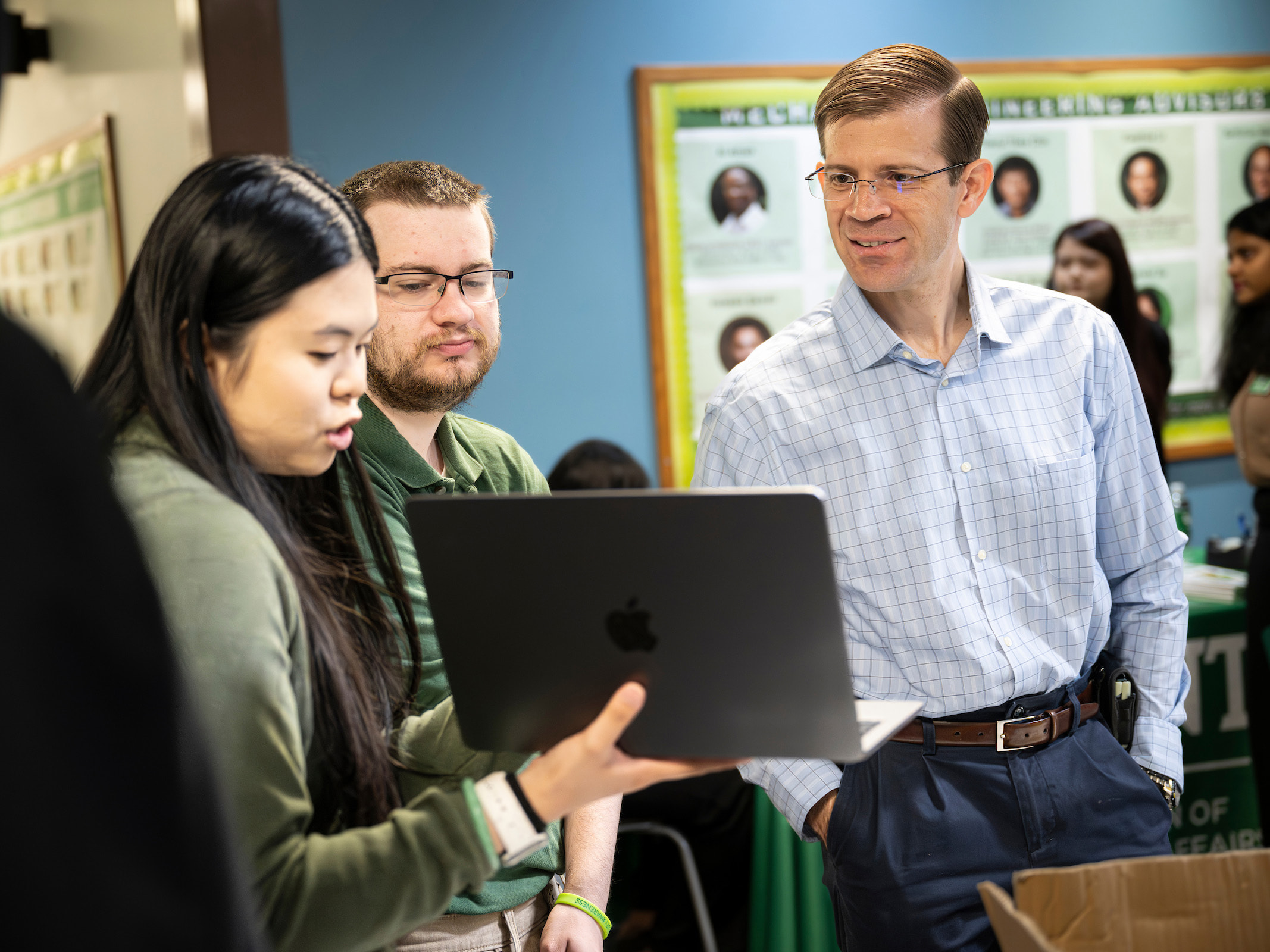
As the College of Engineering shapes the engineers of tomorrow, it also is collaborating with the community to engage the next generation in the field. Summer camps hosted by various departments in the college introduce young students and educators to engineering. Programs cover artificial intelligence, renewable energy, cybersecurity and advanced manufacturing.
“Engineering is essential to the technology that supports our modern world and will be key to improving our quality of life and addressing future challenges,” Krueger said. “Our faculty are dedicated to advancing science and technology to solve complex problems and inspiring students to reach their potential. Engineers will have endless opportunities to create, design and innovate now and in the future.”